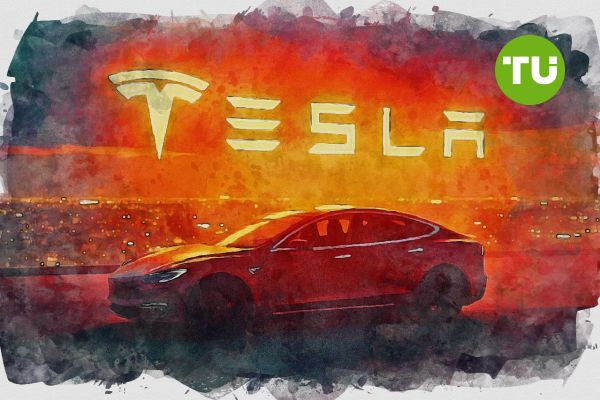Tesla stock slides to $252 as delivery slump and Musk controversies weigh
 Tesla is facing backlash from environmentally conscious consumers.
Tesla is facing backlash from environmentally conscious consumers.
As of April 14, Tesla Inc. (NASDAQ: TSLA) continues to trade in a volatile range, with its latest closing price at $252.31.
The stock has declined approximately 48% year-to-date, underscoring the bearish sentiment prevailing in the market. Intraday trading on April 12 saw a high of $257.47 and a low of $241.45, highlighting the stock’s susceptibility to sharp price swings. The 50-day moving average has dropped to around $263, while the 200-day moving average is even higher, indicating a prolonged downtrend and persistent selling pressure.
Technical indicators also reflect caution. The Relative Strength Index (RSI) remains near 42, suggesting Tesla is approaching oversold territory but not yet triggering a reversal signal. Resistance is currently observed around the $265 level, which aligns with the 50-day moving average. If TSLA fails to break above this threshold in the coming sessions, the next leg down could test support at $235, the recent intraday low.
TSLA stock price dynamics (February 2025 - April 2025). Source: TradingView.
Trading volume has spiked significantly in recent sessions, registering nearly 129 million shares traded—well above the stock’s 30-day average. This heightened activity suggests institutional investors are actively repositioning, either locking in gains from prior rallies or adjusting exposure amid weakening fundamentals. The volume spike, coupled with the sharp daily range, points to a market in transition, where large players may be bracing for further downside or awaiting confirmation of a reversal signal before reentering the stock with confidence.
Declining sales and branding challenges dominate headlines
Tesla's weak price performance has been fueled by deteriorating fundamentals. The company reported sharply lower delivery figures across several major regions. In China, Tesla’s sales dropped by 11% year-over-year in February. Europe fared even worse, with Germany and France reporting year-over-year declines of over 45%. In the U.S., Tesla's market share has been gradually eroded by the resurgence of traditional automakers offering more competitive electric and hybrid models.
Adding to its woes is the rising dominance of Chinese EV leader BYD, which delivered over 4.27 million vehicles in 2024 compared to Tesla’s 1.78 million. BYD’s aggressive expansion and technological edge, such as rapid-charging capabilities, have eroded Tesla’s first-mover advantage. Meanwhile, U.S. automakers like Ford and General Motors are catching up, increasingly matching Tesla on performance, pricing, and sustainability narratives.
Brand sentiment has also taken a hit, with CEO Elon Musk’s political involvement becoming a lightning rod for criticism. His controversial alignment with the Trump administration and appointment to the Department of Government Efficiency (DOGE) has polarized public opinion. Tesla is facing backlash from environmentally conscious consumers and progressive investors, many of whom have publicly questioned the company’s direction under Musk's leadership. Protests, social media campaigns, and calls for boycotts have further pressured investor confidence.
Further downside risk before any sustained rebound
In the short term, Tesla’s stock appears vulnerable to further downside. Without a meaningful catalyst—such as an earnings surprise, new product innovation, or positive geopolitical shift—it is unlikely that TSLA will sustain any rally beyond the $265–$270 resistance band. Should the current negative sentiment persist, particularly around brand image and sales metrics, a breakdown toward $230 is increasingly probable.
Nonetheless, a contrarian case is being made by some analysts. Barclays’ Dan Levy recently raised his TSLA price target to $325, citing potential tailwinds from Tesla’s progress in autonomous driving and AI technologies. However, these themes are more likely to materialize in the medium-to-long term rather than reversing near-term momentum.
Last week, Tesla launched a new long-range Cybertruck priced at $69,990 in a bid to boost demand amid growing concerns over affordability and performance. However, the company’s efforts were overshadowed by China’s retaliatory 125% import tariff on U.S. EVs, forcing Tesla to suspend Model S and X orders in one of its key international markets.













































































































































